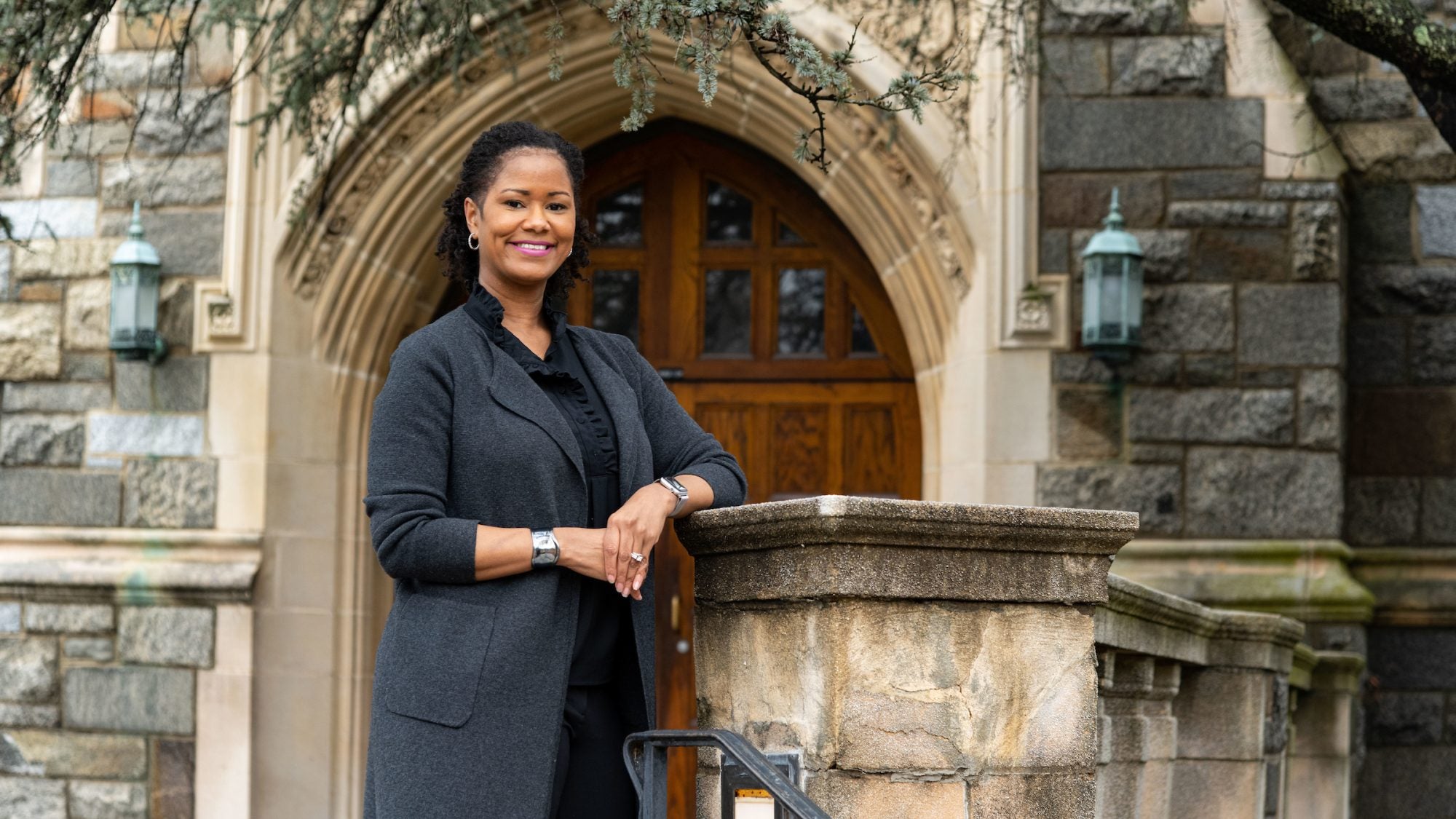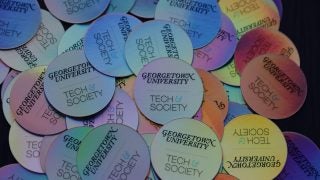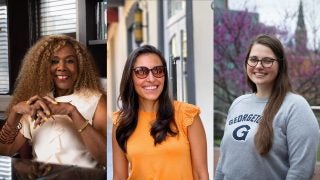What are your goals as the first V.P. of interdisciplinary initiatives?
I hope to try to decrease the barriers that prevent collaboration across schools and campuses. Sometimes bureaucracy can get in the way of great ideas, so trying to identify and limit those barriers is one goal.
One of the things universities always do is define and create new fields, new areas of thought, new ways of answering problems. As a university, things are always burgeoning, so I want to tap into those areas at Georgetown and in the world more broadly and help to nurture them here.
[I’ll think] about what it will take structurally in terms of the institution to maintain these new areas of thought, research, teaching, collaborative work and how to put the pieces in place, whether it’s policy-wise, supporting them with peoplepower — whatever the gaps are, trying to figure out how to better support those areas.
Why is it important to approach problems with an interdisciplinary lens?
I think that the pandemic showed us how important it is for our scientists to be in conversations with our public policy folks, with our ethicists, with our economists. I mean, we’re still dealing with the supply chain issues that emerged during the pandemic. So in terms of making the case for interdisciplinarity, the pandemic was the perfect exemplar of that.
But certainly the climate crisis is another example of this. There are economic consequences of the climate crisis that also have a disproportionate impact on communities of color in the Global South, so there’s an equity issue that brings in the humanities and questions about ethics. So again, to tackle this issue, clearly our scientists need to be at the table, but in order to get our arms around it, it’s also going to require other areas of thought to form solutions.
Why is Georgetown well suited for investment in interdisciplinary initiatives?
One of the things that Georgetown has invested in as a place, and one of the reasons the mission resonates with me, is our work is meant to be towards making society better. We’re not just creating knowledge for its own sake, which is a noble enough goal in itself, but in our case, we’re invested in doing it to make a better society.
This job gives me the opportunity to really think about how bringing groups of scholars together can help to actualize Georgetown’s investment in creating knowledge for the common good. The questions that we’re trying to answer as a society require bringing multiple people to the table. I’m hopeful in my role that I will be able to not only support the brilliance of our individual faculty members, but by bringing groups together, it will help to channel that brilliance towards the common good.


